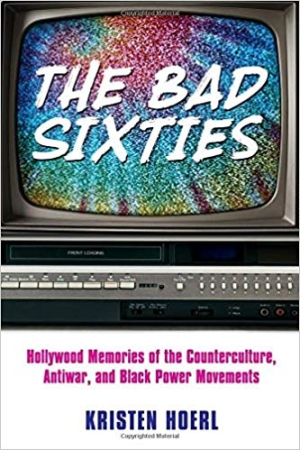The Bad Sixties
Hollywood Memories of the Counterculture, Antiwar, and Black Power Movements
Kristen Hoerl’s The Bad Sixties examines Hollywood’s take on 1960s America. It reveals that the entertainment industry, which could have been a potent force for progress, dropped the ball by avoiding serious engagement with the powerful, radical ideas that moved people to take to the streets. Instead, she says, it chose to focus on what it saw as the breakdown of “traditional American values.” The result was a distorted, stereotype-ridden picture of the decade’s social movements and its leaders—disturbing, considering the important role that film and television play in molding the attitudes of new generations.
Citing several popular television shows and films of the era, Hoerl shows how they contributed to the “bad” image of the 1960s, portraying it as a nation-dividing decade marked by sexual experimentation and drug use as much as it was by antiwar protests, urban riots, and the rise of feminism.
She argues that there was much of real value going on, including the exploration of ways in which citizens could participate in their democracy in a time when their voices were going unheard, and declares that the dismissive, even hostile attitude of Hollywood and television toward the issues of the sixties contributed to a kind of “selective amnesia” surrounding the reasons for its social conflicts and rebellions. As a result, generations born after that pivotal decade will find, in films, neither accurate information nor the inspiration they need to engage in their own activism.
Hoerl shows how Hollywood’s characterization of the sixties as “bad” has hindered the progress that could have been made with the help of potent reminders of the passion, anger, and belief in the possibility of change that characterized the decade.
Reviewed by
Kristine Morris
Disclosure: This article is not an endorsement, but a review. The publisher of this book provided free copies of the book to have their book reviewed by a professional reviewer. No fee was paid by the publisher for this review. Foreword Reviews only recommends books that we love. Foreword Magazine, Inc. is disclosing this in accordance with the Federal Trade Commission’s 16 CFR, Part 255.

